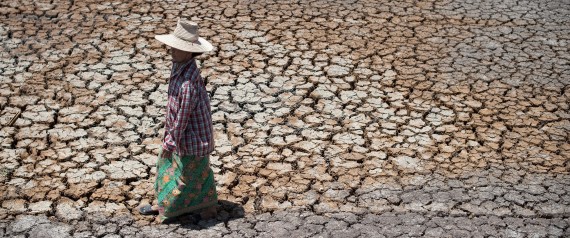
Two items crossed my desk recently that were so fundamentally opposite in their visions of the future that it was enough to give a reader whiplash. The first was the 2012 book Abundance, the optimistic paen to entrepreneurs, inventors and Silicon Valley gazillionaires written by X-Prize founder Peter Diamandis and science journalist Steven Kotler. The authors claim that the exponential growth of technology will solve all the world's ills, and, "within a generation ... provide goods and services, once reserved for the wealthy few, to any and all who need them." Poo-burning toilets, refrigerator-sized water purifiers, portable nuclear power plants, algae biofuels and skyscraper greenhouses capable of feeding the world's 800 million hungry, among many other gadgets, they contend, are just around the corner and, within 25 years, will create a techno-utopian world.
The other item was more sobering -- an article in London's Independent newspaper headlined, "Society will collapse by 2040 due to catastrophic food shortages, says study." The study, based on a model created at Anglia Ruskin University's Global Sustainability Institute, forecasts that if global emissions continue unabated, plausible climate trends will lead to catastrophic crop failures and food riots around the globe. "In this scenario, global society essentially collapses as food production falls permanently short of consumption," Aled Jones, director of the Institute, told reporters. The study echoes a similar, peer-reviewed report from Lloyds of London, which found the probability of a major food crisis "significantly higher" than the insurance industry's benchmark return period of 1:200 years.
Read more here.























